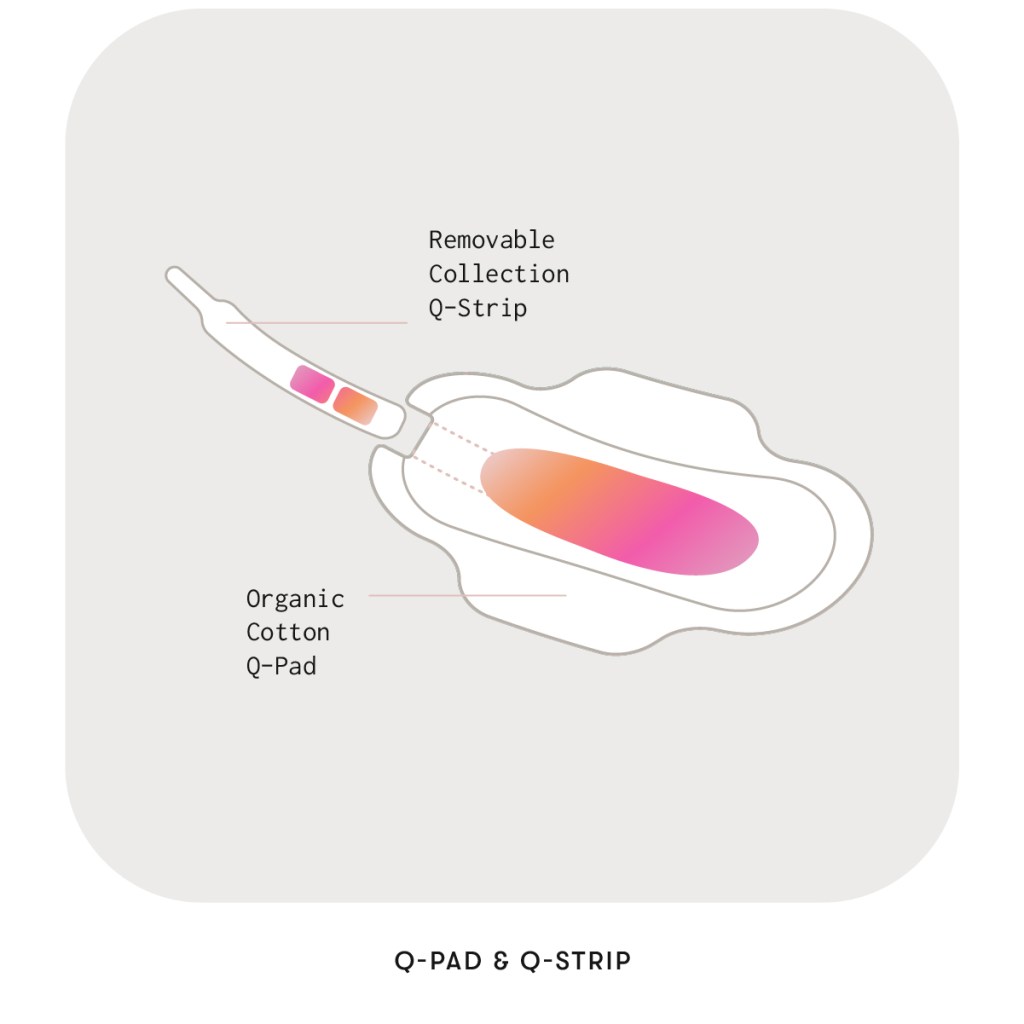This week, Qvin launched with FDA clearance for its Q-Pad that tests A1C levels via menstrual blood.
Now available on the brand’s site, the Qvin A1C kit, $49, includes two 100 percent cotton Q-Pads, which look like typical menstrual pads but include two removable strips that collect blood. This alternative to invasive blood draws can detect A1C or blood sugar levels to predict pre-diabetes and diabetes. Samples are sent to a CLIA-certified (Clinical Laboratory Improvement Amendments) lab for testing and users will receive results within a week on the brand’s app.
The Qvin team chose to launch the brand with an A1C-testing kit, as it is a critical biomarker that could impact many, the company said. According to the CDC, 97.6 million adults aged 18 years or older had prediabetes in 2021.
Related Articles
“We want to make sure that what we’re offering has clinical utility and hemoglobin A1C without a doubt has that,” said Qvin cofounder Dr. Sara Naseri.
With FDA clearance, Qvin is able to claim that its menstrual blood test is as accurate as a typical blood draw. During the trials, which included thousands of women, the team compared a user’s Qvin samples to a systemic blood draw, confirming that it met the same standards. Results showed that menstrual blood is consistent and is not impacted by factors like temperature, shipping time and exposure to other products.
“A woman can collect anywhere in the country and the sample is still consistent and stable,” Naseri said. “We had a lot of women with chronic illness, diabetes being an example, reach out and say ‘this is a massive improvement of my quality of life that I don’t have to go in [for a blood draw]’.”
With this in mind, the brand plans to explore test options for an array of women’s health issues and biomarkers, including cervical cancer screening, iron levels, inflammatory markers and a slew of hormones.
“When we look at the potential of menstrual blood, what we know is that there is a lot of health information present and we have just only started scratching the surface,” said Naseri.


